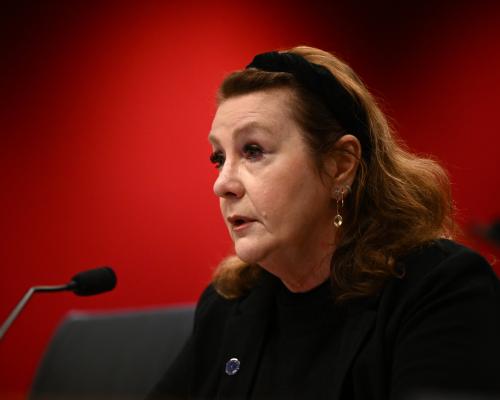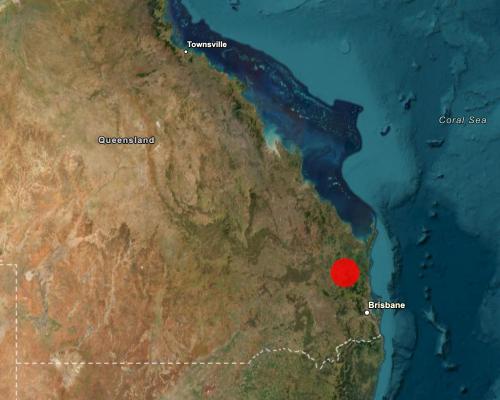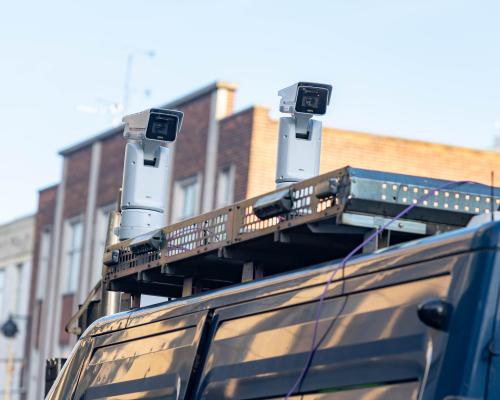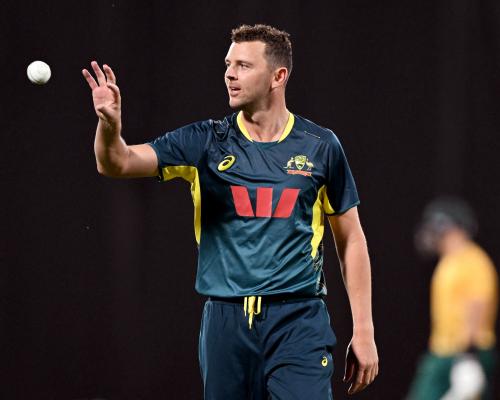
The head of the New South Wales police child sex abuse squad has called for the creation of a national database of childcare workers who have had “red flags” raised that fall short of criminal prosecution.
Giving evidence before a government inquiry into the early childhood education sector in NSW, Det Supt Linda Howlett said such a database would allow centres to share intelligence about former employees who have faced serious allegations that didn’t result in criminal charges. They are still allowed to work with children.
“I personally would like to see a database that actually has all those red flags included in it,” Howlett said on Thursday.
“At the end of the day, the offenders that we’ve actually charged, and a number of them are quite high profile, have never had a criminal history. They have a working with children check and that’s the issue.”
Howlett’s call goes significantly further than the proposed “national register” of childcare workers that has been put forward by the federal education minister, Jason Clare, in the wake of horrifying allegations of sexual abuse of children at daycares across Melbourne by a childcare worker.
Clare has suggested a register – containing details of staff and where they have worked – would assist in protecting children.
However, a Guardian investigation last month revealed that most childcare workers who are reported to police or the childcare regulators for allegations of child abuse are allowed to continue working with children, because police and childcare regulators struggle to block them from continued employment if the claim doesn’t result in a criminal conviction.
A 2023 review of the childcare regulatory system, conducted by the Australian Children’s Education and Care Quality Authority (Acecqa), found many cases of alleged abuse came down to “a child’s word against an educator’s” resulting in “unsubstantiated claims where no further action is taken”.
Childcare services “have no way to share this information with another approved provider considering employing that person unless they are contacted as a referee,” it said.
Howlett said that she understood there were legal and privacy issues regarding any database that tracked allegations that had not been proven. But she said child safety concerns should take preecedence.
She said perpetrators “need access to the children, that’s the main aim, and they will do anything to get that”.
“So they’ll stay under the radar … what they’ll do is they shop around. They’ll look for centres that aren’t doing the right thing, and that’s where they have the opportunity to offend.”
Howlett said some of red flags that might be noted on a database could include people who work across many centres, whom she said may be “centre shopping”; as well as reasons people have been fired from a previous childcare centre. It could also detail any allegations about their behaviour.
“Obviously, we can’t crucify people. You know, people have got their rights … but that’s why I think a database should exist… so then that information should be recorded,” she said.
Rachael Ward, the acting children’s guardian for NSW, said it could be beneficial to implement a register for childcare workers similar to the one for the out-of-home care system in NSW.
“We have an out-of-home care register, which has a flag system … and that does alert other out-of-home care providers if there is a red flag.
“It just means ‘contact me for further information’. It doesn’t say what the allegations are, it’s just that ‘I have … information that may be of use to you if you’re going to employ this person’. I do wonder if there’d be a register that could be created in a similar vein.”
Howlett warned that parents who suspect their children have been abused at a childcare centre should not notify the centre director – but instead go straight to police or the regulator to report incidents.
“My advice to parents and my advice to anyone would be, do not approach the director of the centre,” said Howlett.
“They shouldn’t be doing that, as far as I’m concerned, they’re tipping off the educator or the centre about what’s taken place.”
Howlett said that childcare directors who receive reports of abuse from parents may act out of “self-preservation” and potentially downplay the allegations and seek to discourage parents from official reporting.
“I’m sorry, I’m probably a little cynical, but the director, first of all, doesn’t want to lose the business. Money’s involved and they don’t want this centre to get a bad reputation.”





